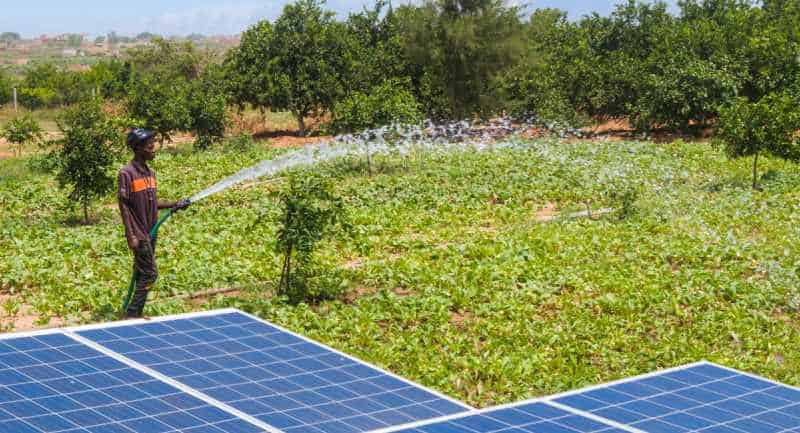
Solar energy provides clean, affordable and sustainable power that goes beyond lighting homes. From solar-powered farms in Kenya to rural clinics in Ethiopia, solar energy is transforming lives, boosting productivity and driving economic growth. By tapping into the continent’s abundant sunlight, Africa has the chance to unlock new opportunities for agriculture, small businesses, education, and healthcare, creating a brighter, more sustainable future.
1. Solar-Powered Agriculture
Agriculture is the backbone of many African economies, but farmers often struggle with erratic rainfall and high energy costs. Solar energy can revolutionize this sector by powering:
Irrigation systems: In Kenya, solar water pumps have helped smallholder farmers irrigate their crops year-round, improving yields and reducing dependence on unpredictable rainfall.
Cold storage units: Nigeria has deployed solar-powered cold storage facilities to preserve perishable produce like tomatoes and fish, significantly reducing post-harvest losses.
Processing equipment: In Tanzania, solar-powered maize mills allow rural communities to process grain locally, adding value and increasing income.
These applications show how solar energy can enhance productivity and food security.
2. Solar in Micro-Enterprises
Solar energy is unlocking new opportunities for small businesses across Africa:
Solar kiosks and shops: In Uganda, entrepreneurs run solar-powered kiosks offering lighting, phone charging and small appliances in off-grid villages.
Mobile phone charging: Rural Ghanaian communities benefit from solar charging stations that support communication and generate income.
Food and beverage businesses: In Rwanda, solar-powered refrigerators are used in small restaurants, helping small businesses thrive.
These productive uses create jobs and stimulate local economies while providing reliable energy.
3. Solar for Education and Healthcare
Reliable electricity is crucial for schools and health facilities:
Schools: In Mozambique, solar-powered classrooms provide lighting and electricity for computers, enabling students to study after dark and access digital learning resources.
Health clinics: In Ethiopia, solar energy ensures uninterrupted refrigeration for vaccines and powers essential medical equipment, improving healthcare delivery in remote areas.
Access to energy directly supports better education and healthcare outcomes.
4. Benefits of Productive Solar Use
Economic empowerment: Increased productivity, new businesses and higher incomes.
Environmental sustainability: Reduced reliance on diesel generators and firewood, lowering carbon emissions.
Resilience: Communities gain energy independence, reducing vulnerability to power outages.
Conclusion
Solar energy is a tool for economic empowerment and transformation. By leveraging Africa’s abundant sunlight for productive purposes—from farming and micro-enterprises to education and healthcare—countries like Kenya, Nigeria, Tanzania, Uganda, Ghana, Mozambique and Ethiopia are showing how solar can drive sustainable development, economic growth and energy independence. The sun is shining, and Africa’s future is bright.
